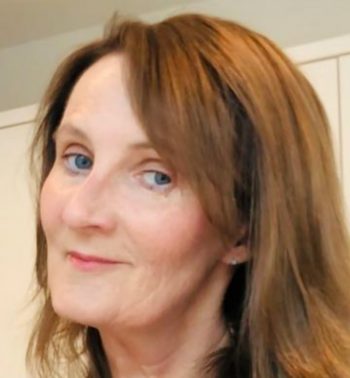1 May 2025
Kathryn Guest is Directorate Lead Dietitian for Adult Learning Disabilities at Oxleas NHS Foundation Trust. In this guest blog, she writes about a recent hackathon project to help improve the lives of adults with a learning disability through healthier eating.
An opportunity arose for me to attend a Hackathon and to participate in a European project designed to help improve the lives of adults with a learning disability.
As a registered dietitian actively working with this client group, alongside undertaking a full scoping project to identify physical health services, I felt I was the ideal candidate to take part. This project fosters creativity, problem-solving and collaboration, ultimately creating a more inclusive society where adults with a learning disability can thrive. By collaborating with like-minded individuals and leveraging diverse skills, we can create novel ideas that address the specific challenges faced by this group.
As I scoped out the project, I engaged with various stakeholder groups to understand their requirements. During this scoping exercise, the theme of social isolation repeatedly arose. Many clients reported a lack of meaningful social interaction, especially those living in supported accommodation or living independently in their own homes. This highlighted that a significant barrier for good health in this client group was the social aspect of eating amongst others. Sharing a meal with others can be a very social and enjoyable activity. Eating alone can feel lonely, and this can have a negative impact on food choices, mental health, and general wellbeing. I decided that this issue was going to form the basis of my idea.
On arrival at the venue, I was assigned to a team of six people. This comprised of heads of public health services around the local area, two project designers, and other clinicians working with this client group. I felt we had a significant range of capability within the team as well as varied and diverse perspectives and experiences with this client group. Presentations were delivered from the event organisers giving an overview of their role and what they are looking to achieve from this event.
My mind started racing with all the information and feedback I had received during my scoping project and how this could be used to develop our project. Feedback received from service users within my Trust and external agencies/services suggested the participants wanted to learn more around healthy food and cooking skills. This also involved the carers and support workers who felt they would like support with this patient group to help facilitate healthy eating information and cooking practices.
After discussion within my group, I put my idea forward. This was to develop a toolkit to allow service providers to facilitate their own cooking sessions. This was based on a “cook and dine” style session with a facilitator to deliver the session, alongside one of the participants. My initial thought was for this to be run in a supported living facility in the hope this this would also tackle the issue of social isolation and allow friendships to develop.
We decided to call the toolkit "Cooking Connections". The toolkit can be scaled down and used in a client's own home, alternatively, it can be scaled up and run in the local community centres in group settings. I also looked at the possibility of engaging local supermarkets/food suppliers in a scheme whereby they can donate food with the aim of supporting food sustainability.
Each team was given the opportunity to stand up and speak about their project idea to the whole event participants and feedback was given by the facilitators (a bit like “Dragon’s Den”). I offered to present our project as I felt I had the background information to answer any questions and to say why I felt this project was needed. Having taken on this feedback, one of the project designers agreed to put all the information into a PowerPoint to be put forward the next day. We were all very excited about our project idea and what impact this could possibly have for our service users. It was great to hear that we had won the Hackathon and that we were going to start meetings to start putting our ideas into reality.
This toolkit has received great feedback from local service providers, and we aim to run a pilot study to test its effectiveness. I am hoping to develop the toolkit further to provide a full and comprehensive package. This will include easy to read information on food hygiene and safety, food preparation, and easy to make recipes that participants can come back to, time and time again.
It is amazing what things you can achieve when you work together. I couldn’t have done this without all my team members:
Shiping Emily Zhao - Designer;
Avi Choukhany - Service Designer;
Caroline Welch - Public Health Nutritionist and Project Lead at Good Food Oxford;
Jack Gooding - Public Health Strategist, London Borough of Bexley;
Gillian Fiumicelli - Head of Disease Prevention, London Borough of Bromley.
I am so thankful to each and every one for their input and expertise.
Hack for Food, Hack for Good is part of a series of hackathons in Europe designed and organised by OpenDot for FEAST - Food systems that support transitions to healthy and sustainable diets. This European project aims to promote and support the transition towards healthier and sustainable eating habits and against food poverty. This project is co-funded by the European Union.
Find out more about the work of KHP Diabetes, Endocrinology and Obesity.





